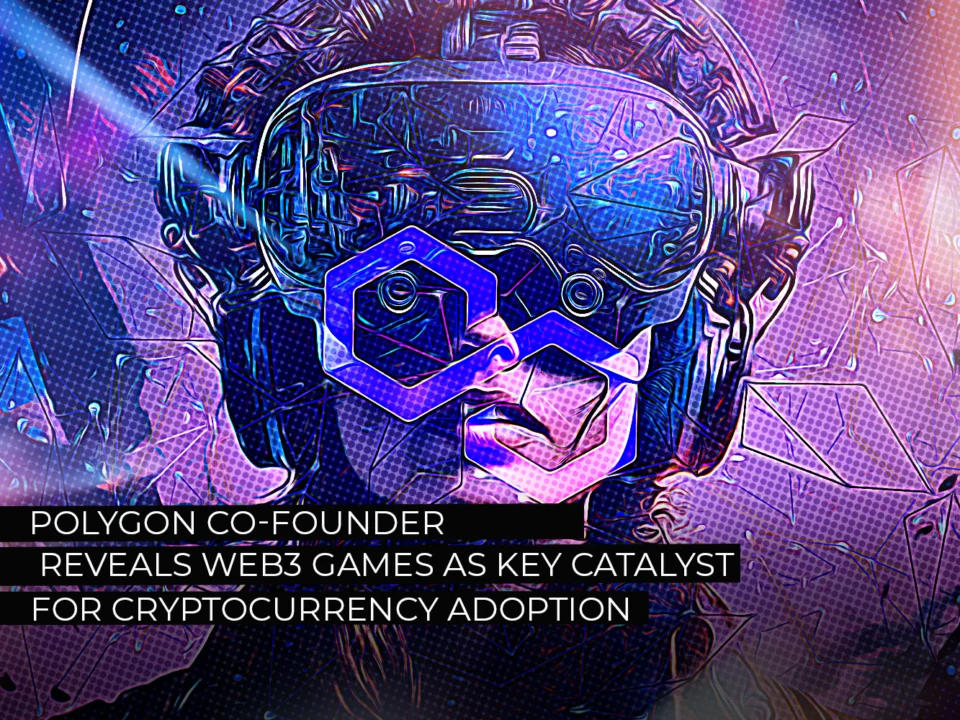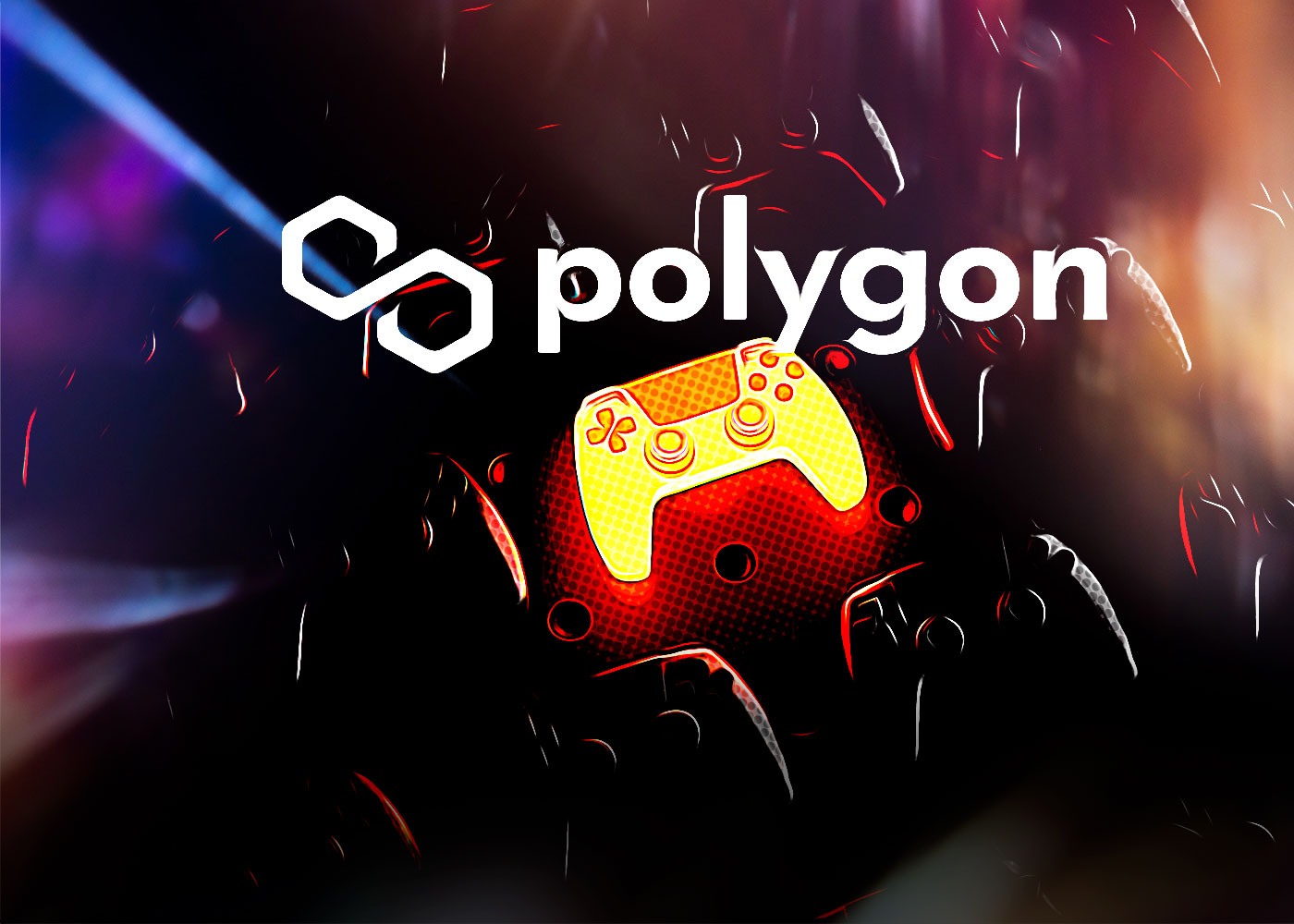Web3 games are rapidly emerging as a significant driver of cryptocurrency adoption, according to the Polygon co-founder. By integrating decentralized technologies, Web3 games offer an engaging platform that not only captivates users but also introduces them to the broader possibilities of blockchain. These games enhance user engagement and stimulate market growth, making them a pivotal element in the crypto ecosystem. While there are challenges in developing these complex applications, the opportunities for innovation and expansion in the Web3 space are immense.
Understanding the Role of Web3 Games in Cryptocurrency Adoption

Web3 games play an essential part in the burgeoning landscape of cryptocurrency adoption. These games integrate blockchain technology, offering a decentralized, transparent, and secure environment for users. Consequently, players gain more control over their in-game assets, like tokens and NFTs, enhancing the overall gaming experience.
Key Roles of Web3 Games in Cryptocurrency Adoption:
- Decentralized Ownership: Players own their digital assets, eliminating the need for intermediaries and creating true value for in-game purchases.
- Enhanced Security: Blockchain provides robust security features, minimizing the risks of hacking and fraud.
- Transparency: Every transaction, trade, or asset transfer is recorded on a public ledger, ensuring fairness and trust among players.
Additionally, Web3 games serve as an entry point for many to understand and engage with blockchain technology. They make complex concepts more accessible, bridging the gap between traditional gaming enthusiasts and the crypto community. By offering tangible benefits and a seamless experience, Web3 games are indeed a key catalyst for wider cryptocurrency adoption.
How Web3 Games Drive User Engagement and Market Growth
Web3 games have emerged as a potent force in engaging users and stimulating market growth. They offer unique experiences that traditional games lack, capitalizing on blockchain technology to create immersive and rewarding ecosystems.
Key Factors:
True Ownership: Web3 games grant players true ownership of in-game assets like characters, weapons, and skins via non-fungible tokens (NFTs). This feature enhances user engagement by allowing players to trade, sell, or transfer their assets seamlessly.
Decentralized Economy: By integrating decentralized finance (DeFi) elements, Web3 games create self-sustaining economies. Players can earn cryptocurrency through gameplay, which they can use or reinvest within the game, driving market activity.
Interoperability: Web3 games enable asset portability across different platforms. Gamers can use their assets in multiple games, creating a connected and expansive metaverse.
Transparency and Security: Blockchain’s transparency ensures fair play, while its security protects against fraud and hacks, building trust among users.
In summary, Web3 games leverage blockchain’s capabilities to offer new opportunities for engagement and market growth. Their innovative features not only retain users but also attract a growing audience in the evolving digital landscape.
Challenges and Opportunities in Developing Web3 Games
Developing Web3 games presents a unique set of challenges and opportunities that set it apart from traditional gaming.
Challenges
- Scalability Issues: Web3 platforms often struggle with scalability. Handling a large number of transactions can be cumbersome and slow, potentially affecting the user experience.
- Security Concerns: Blockchain technology, while secure, is not invulnerable. Smart contract exploits and hacks can compromise game integrity and user trust.
- User Education: Many potential users are unfamiliar with blockchain and cryptocurrency concepts, creating a barrier to entry.
- Regulatory Hurdles: The legal landscape surrounding cryptocurrencies is still evolving, causing uncertainties for developers.
Opportunities
- Decentralization: Web3 games allow for decentralized asset ownership, giving users true ownership of in-game items.
- Innovation: The emerging space encourages innovation, pushing the boundaries of what games can achieve.
- Community Engagement: Web3 games often have strong community support, which can drive loyalty and long-term engagement.
- New Revenue Models: Developers can explore novel revenue models like play-to-earn that traditional games cannot offer.
Navigating these challenges and leveraging opportunities will define the future success of Web3 games, catalyzing broader cryptocurrency adoption in the process.
Frequently Asked Questions
What key point did the Polygon co-founder highlight regarding web3 games?
The Polygon co-founder emphasized that web3 games have the potential to be a significant catalyst for the widespread adoption of cryptocurrencies. According to the co-founder, the interactive and engaging nature of web3 games can attract a broader audience, making it easier for users to become familiar with digital currencies and blockchain technology.
How do web3 games contribute to the cryptocurrency ecosystem?
Web3 games contribute to the cryptocurrency ecosystem by integrating blockchain technology, which allows for secure, transparent, and decentralized in-game transactions. Players can earn, trade, and own digital assets within these games, providing practical use cases for cryptocurrencies and demonstrating the utility of blockchain technology in a familiar and entertaining context.
What advantages do web3 games offer over traditional games?
Web3 games offer several advantages over traditional games, including true ownership of in-game assets, enhanced security, and the potential for real-world value generation. In web3 games, players can own their digital assets (such as characters, items, and tokens) without dependence on a central authority, leading to a more immersive and rewarding gaming experience. Blockchain technology ensures secure transactions and reduces the risk of fraud, hacking, or loss of assets.
Why are web3 games considered crucial for technological adoption?
Web3 games are considered crucial for technological adoption because they serve as an accessible entry point for a wide range of users to experience blockchain and cryptocurrency in an intuitive and entertaining manner. By engaging users through gameplay, web3 games can demystify complex concepts and stimulate interest in exploring further applications of blockchain technology beyond gaming. This can drive broader acceptance and utilization of decentralized technologies in various sectors.







